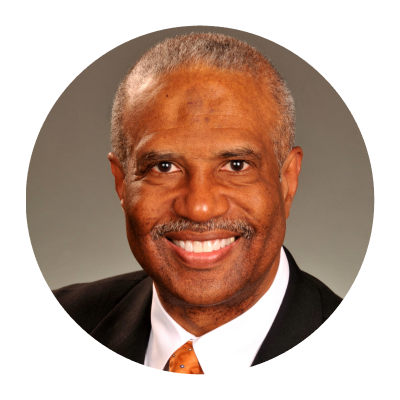Watch the recording of the webinar below!
Price spikes, market volatility, project delays, tariff and regulatory uncertainty have upended plans and impaired strategies formed by organizations to fulfill their decarbonization objectives. We’ve gone from a world of plentiful and ever lower cost on-site and off-site renewable energy resources – really a buyers market – to a sellers market where buyers are competing for scarce resources. In the face of such a shift, smart organizations need to adapt by adopting a conservation-first mindset, and a commitment to exploring innovative efficiency technologies and developing programs to optimize the benefits of energy efficiency programs.
In this tailored webinar, we explored various innovative energy technologies and how they can help your organization drive towards its net-zero objectives while generating cost reductions and reducing the burden of securing scarce renewable energy resources.
For years, companies have been shifting their mindset of their energy programs from cost-effectiveness and reliability to focusing on renewable energy and reducing carbon emissions. Renewable energy, electrification and efficiency are critical components of any net-zero energy strategy. With a deeper understanding of renewable energy products (offsite, onsite, RECs), it is time to shift the focus to deep energy efficiency and conservation measures to accelerate your net-zero efforts through actual emission reductions.
As part of the Great Lakes Carbon Collaborative, this month’s webinar guest from AEP Energy Services walked us through efficiency measures and technologies that often are overlooked due to the technical nature and sophistication of solutions. Attendees walked away with an understanding of technical solutions and execution strategies to enhance their net zero objectives.
Event Speaker:

Brandi Nye, Managing Director of Business Solutions, AEP Energy
Brandi Nye has over a decade of energy experience ranging from regulatory rate strategy and analysis, economic development, supply and demand-side product and service innovation, corporate social responsibility and sustainability and decarbonization consulting for commercial and industrial customers. In her current role, Brandi is responsible for business development and strategic partnerships within the AEP Energy services organization.
Prior to joining AEP Energy, Brandi worked for Entergy specializing in decarbonization innovation at Entergy Services and graduated with her Executive Masters in Sustainability Leadership from Arizona State University. Brandi’s role includes understanding sustainability trends, policies and energy-specific regulations that feed directly into customer insights on decarbonization services.
Event Moderators:

Lora Shrake – Senior Program Director, Business and Sustainability, Council of the Great Lakes Region
Lora Shrake is the Senior Program Director, Business and Sustainability for the Council of the Great Lakes Region (CGLR), where she is working with a growing network of business leaders to connect across sustainability issues and support the advancement of cross-sector solutions. Some of the programmatic areas include circular economy, water stewardship, and climate change and decarbonization. Lora also facilitates CGLR’s monthly business and sustainability webinar series, providing a platform for knowledge sharing and amplifying regional best practice.
Lora’s career experience spans across non-profit operations, environmental program management, stakeholder engagement, strategy, and research. Prior to joining CGLR, Lora led a national green building council in the United Arab Emirates where she oversaw all aspects of the organization’s cross-functional development, including its impact and reach.

Claude Griffin – Executive Director, US Business Council for Sustainable Development
Claude is the Executive Director of the US Business Council for Sustainable Development (US BCSD), a globally recognized leader in sustainable development solutions, collaboration and innovation. Current platforms focus on decarbonization, equity, water/ecosystem synergies, and material reuse in support of a circular economy. Among his goals as executive director, Claude is expanding upon the US BCSD’s strong social equity foundation.
Claude served skillfully as a program director at the US BCSD for two years, following retirement from Shell in Houston. He has more than 40 years of program and project experience in commercial and government sectors, focused on energy, environmental restoration, conservation, and social investment. Before retiring from Shell, he served as External Relations Advisor for Social Investment Environmental Programs in the US. He holds a Bachelor of Science degree in Electrical Engineering from North Carolina A&T State University.
About the Great Lakes Carbon Collaborative:
The Great Lakes Carbon Collaborative is connecting companies with decarbonization commitments to other like minded-companies and organizations in the region to develop action strategies together. Modeled after the US BCSD’s Gulf Coast Carbon Collaborative, the Great Lakes Carbon Collaborative is supporting the development and implementation of multi-industry decarbonization projects in the bi-national Great Lakes region. Business-led working groups are formed in the following areas – electrification, hydrogen, carbon capture use and storage, nature-based sequestration, and decarbonization through material circularity.
The US Business Council for Sustainable Development and the Council of the Great Lakes Region serve as the Collaborative secretariat, organizing and facilitating working groups and helping members thoroughly understand decarbonization strategies leading to collaborative projects.
Visit the Great Lakes Carbon Collaborative website for more information: https://greatlakes.carbon-collaborative.org/



